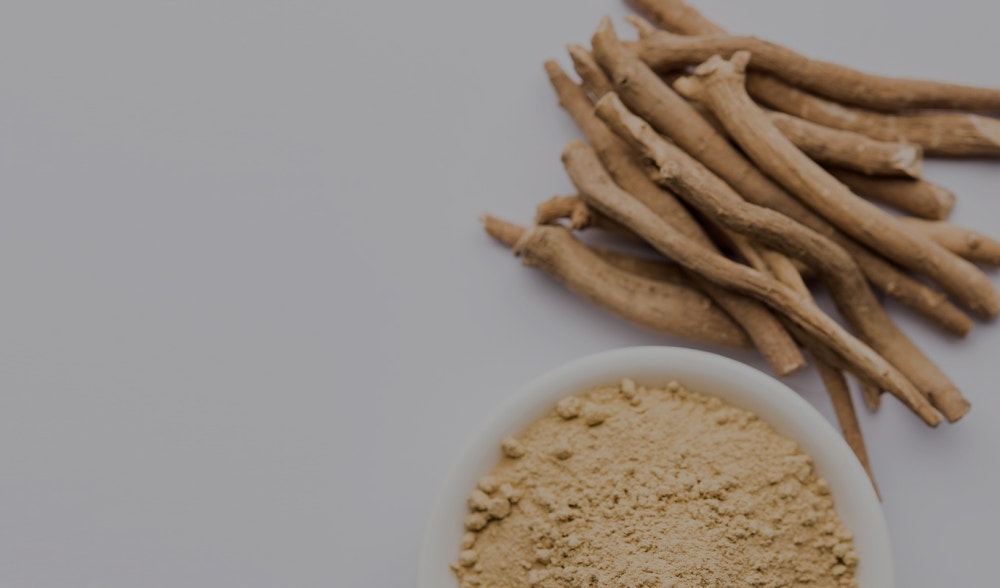One of the phytotherapeutic nutraceutical elements that have fascinated me most in recent years is the Ashwagandha (or Withania somnifera, but also called "Indian Ginseng") one of the most powerful herbs in Ayurvedic medicine of which I was among the very first to talk about it in Italy.

In Sanskrit, Ashwagandha means "horse smell", referring to its conferring "the strength and vigor of a stallion". Used for millennia in Ayurvedic medicine, ashwagandha is regarded as a "Rasayana", a tonic for restoring and maintaining health and promoting longevity. It is attributed known and effective anxiolytic, hypotensive, pain-relieving and antioxidant properties, as well as being used to treat problems related to impotence and infertility.
Today it has come to be increasingly known and appreciated also by the modern "stressed" and adrenaline-fueled Western world, as an "adaptogen" par excellence capable of increasing the body's ability to manage and respond to stressors of various kinds, able to give relief , to counter the states of anxiety, to promote relaxation, and mental clarity in case of chronic psychophysical fatigue. The merit of these powerful adaptogenic properties derives from its composition of bioactive elements in the form of steroid lactones, in this case of "withanolides". First of all "witaferin A", its most powerful active ingredient of this extraordinary medicinal plant to which the differentanti-inflammatory, cardioprotective, especially neuroprotective activities, and at the level of the immune system.
But its action most recognized and confirmed by research is that on the discourse of the health of the brain, the nervous system and the neurocognitive landscape which extends its potential range of action from only support to anxiety and stress states. This "cousin" of the tomato improves brain health and function in several ways, such as enhancing the "binding" efficacy of GABA and serotonin receptors in the brain. It seems to act in an interesting way on the receptors of neurons, allowing GABA to connect more easily, and thus inhibit the signals present from the stress response. Tonic-adaptogen therefore par excellence that improves cognitive and psychomotor performance (in a healthy brain), with a particular "antiaging" effect on the axons and dendrites of brain nerve cells, which favors synapses, the junctions in which nerve cells communicate.

We also know that chronic stress and cortisol can damage the brain over time by altering neural networks. Cortisol creates a domino effect that crosses the "software" connection between the hippocampus and the amygdala, the area responsible for your fight or flight response that remains in "permanent alert", even when not needed, or it takes very little to activate it and have a non-proportional response. Here the Ashwagandha arrives to intervene precisely to restore those physiological balances and "quell the threats" detected when there is no real need.
If we are experiencing severe fatigue and brain fog ("brain fog") especially upon waking, if we are perpetually "exhausted" and without strength, if the motivation is on the ground with a fluctuating morale, where anxiety becomes an unpleasant daily burden , Ashwagandha is the most interesting and effective element that oriental phytotherapy has transmitted to us "today", and where modern science has already given several confirmations. An extraordinary nutraceutical element that can be of help to anyone going through phases of psychophysical stress, by professionals from various sectors, athletes, soldiers, or anyone who needs to restore "upstream" the ability to respond with clarity and efficiency to agents or stressful situations, both mental and physical, as well as knowing how to rest when there is no "danger ", Putting a brake on cortisol levels, with better balance on those of acetylcholine that will reinvigorate performing so you can think again with clarity, more calmly and improving reaction times.
SCIENTIFIC REFERENCES
Singh N, Bhalla M, de Jager P, Gilca M. An overview of ashwagandha: a rejuvenating Rasayana of Ayurveda. Afr J Tradit Complement Alternate With. 2011;8(5 Suppl):208-13. doi: 10.4314/ajtcam.v8i5S.9. Epub 2011 Jul 3. PMID: 22754076 ; PMCID: PMC3252722.
Mishra LC, Singh BB, Dagenais S. Scientific basis for the therapeutic use of Withania somnifera (ashwagandha): a review. Altern Med Rev. 2000 Aug;5(4):334-46. PMID: 10956379.
Bhattacharya S.K., Bhattacharya A., Sairam K., Ghosal S. “Anxiolytic-antidepressant activity of Withania somnifera glycowithanolides: an experimental study.” Phytomedicine 2000 Dec;7(6):463-9.
Sengupta P, Agarwal A, Pogrebetskaya M, Roychoudhury S, Durairajanayagam D, Henkel R. Role of Withania somnifera (Ashwagandha) in the management of male infertility. Reprod Biomed Online. 2018 Mar;36(3):311-326. doi: 10.1016/j.rbmo.2017.11.007. Epub 2017 Dec 7. PMID: 29277366.
Kuboyama T, Tohda C, Komatsu K. Effects of Ashwagandha (roots of Withania somnifera) on neurodegenerative diseases. Biol Pharm Bull. 2014;37(6):892-7. doi: 10.1248/bpb.b14-00022. PMID: 24882401.
Kuboyama T., Tohda C., Komatsu K. “Neuritic regeneration and synaptic reconstruction induced by withanolide A.” British Journal of Pharmacology 005 Apr;144(7):961-71.
Choudhary M.I., Yousuf S., Nawaz S.A., Ahmed S., Atta-ur-Rahman. “Cholinesterase inhibiting withanolides from Withania somnifera.” Chemical and Pharmaceutical Bulletin (Tokyo) 2004 Nov;52(11):1358-61.
Choudhary D, Bhattacharyya S, Bose S. Efficacy and Safety of Ashwagandha (Withania somnifera (L.) Dunal) Root Extract in Improving Memory and Cognitive Functions. J Diet Suppl. 2017 Nov 2;14(6):599-612. doi: 10.1080/19390211.2017.1284970. Epub 2017 Feb 21. PMID: 28471731 .
Pingali U., Pilli R., Fatima N. “Effect of standardized aqueous extract of Withania somnifera on tests of cognitive and psychomotor performance in healthy human participants” Pharmacognosy Res. 2014 Jan-Mar; 6(1): 12–18.
“New evidence that chronic stress predisposes brain to mental illness” University of California, Berkeley Feb. 11, 2014, Retrieved Mar. 24, 2016
Chandrasekhar K., Kapoor J., Anishetty S. “A prospective, randomized double-blind, placebo-controlled study of safety and efficacy of a high-concentration full-spectrum extract of ashwagandha root in reducing stress and anxiety in adults.” Indian Journal of Psychological Medicine 2012 Jul;34(3):255-62.
Dhuley J.N. “Nootropic-like effect of ashwagandha (Withania somnifera L.) in mice.” Phytotherapy Research 2001 Sep;15(6):524-8.
Bhattacharya S.K., Bhattacharya A., Sairam K., “Ghosal S. Anxiolytic-antidepressant activity of Withania somnifera glycowithanolides: an experimental study.” Phytomedicine 2000 Dec;7(6):463-9.


Comments
Write a comment about the article